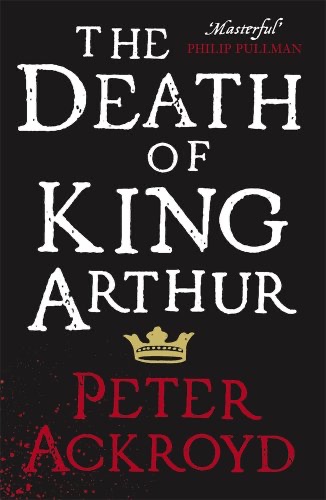Lost on the quest? Lost in translation? Either way… lost.


I first reviewed this, for Amazon UK, in 2010. This is a complete rewrite, or different review, however (same star rating, though).
This is my first taste of Peter Ackroyd’s writing, and, I must confess, it was a slog getting through this book.
Ackroyd mentions trying to retain the “plangent and sonorous” language of Malory’s original – although from what I can tell this was in itself a somewhat patchy synthesis of older tales – but this is an aspect that, for me at any rate, is lost in translation.
The stories making up this book feel like small tales from an oral tradition, one in which any one of the many small adventures described might plausibly be little gems, when taken individually. Or perhaps they were simply tall tales told to pass a cold night huddled round the fire? Sometimes with a moral, sometimes just for the thrill of the adventure.
The trouble is that in this version, the sense of homogeneity is not one of an overarching larger story, or even the charismatic voice of one particular storyteller, but rather a patchwork of oft-repeated formulae – a hunt, a jousting tournament, the discovery of a chapel/hermit – which I found dull rather than exciting.
And there are times when different narrative voices seem to intrude, with no real consistency, such as when the narrator momentarily refers to the reader’s potential doubts regarding a particular miraculous occurence. Such a note really jars, as almost nowhere else are the many such occurrences in any way questioned. A similar but different moment is a reflection on the bizarre theme of courtly love, that does run like a thread throughout these tales: again, out of the blue, the narrator suddenly addresses the reader, and again, it jars somewhat.
Ackroyd may well be right in thinking that some modern readers (perhaps some of the people he had in mind are more watchers than readers?) might not have the palate for Malory’s version. But, in this age of visual recycling – I’m thinking of all the cinema and TV remakes of older books/films and so on – this smacks somewhat of a literary equivalent, so I think the dumbing-down charge made elsewhere, by other reviewers (e.g. on Amazon’s UK website, where I first posted a version of this review), rings true.
It’s been said that Tennyson’s version of this material, The Idylls of The King, says more about Victorian England than it does about the times from which the mytho-poetic subject allegedly springs. I think perhaps the same could be said of this version, and, sadly, it reflects rather poorly on our times, as lacking in either depth or a grand vision. Dare I even suggest that this may have been a project motivated more by a desire for profit from an ever popular subject, than the pure love of it?
By way of contrast, I’d like to refer the potential reader of this book to Tolkein’s fabulous book The Legend of Sigurd And Gudrun. Arising from Professor Tolkein’s work as an academic philologist, this posthumous publication is, by contrast, very clearly a work driven by a deep and abiding love of his subject, a subject ostensibly similar or parallel to Arthurian legend (the Celtic and Nordic myths even connecting at points, through characters such as Tristan and Isolde), including similar aspects of storytelling: warring clans, betrayal, revenge, shifting alliances, feats of arms, love and honour, portents, omens, charms and potions.
But where Ackroyd loses the magic, Tolkien succeeds in retaining it, perhaps even enhancing it, so that the story remains compelling and exciting, as opposed to the rambling hotch-potch on offer here.
I couldn’t, in all honesty, recommend this.
